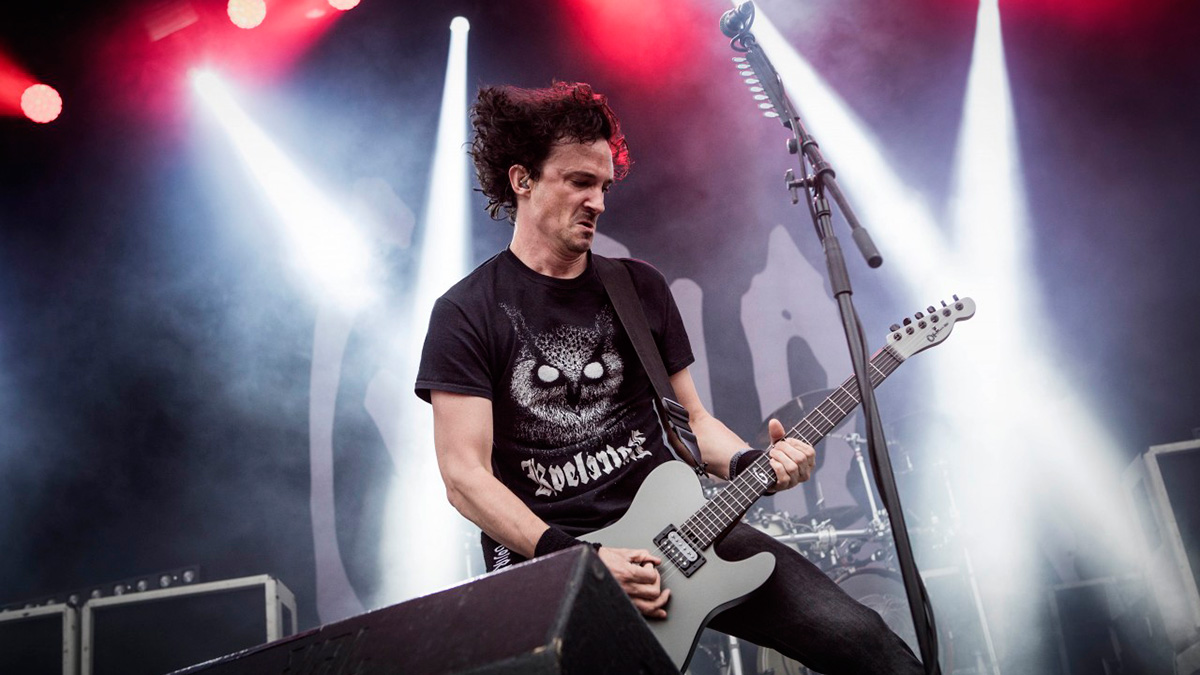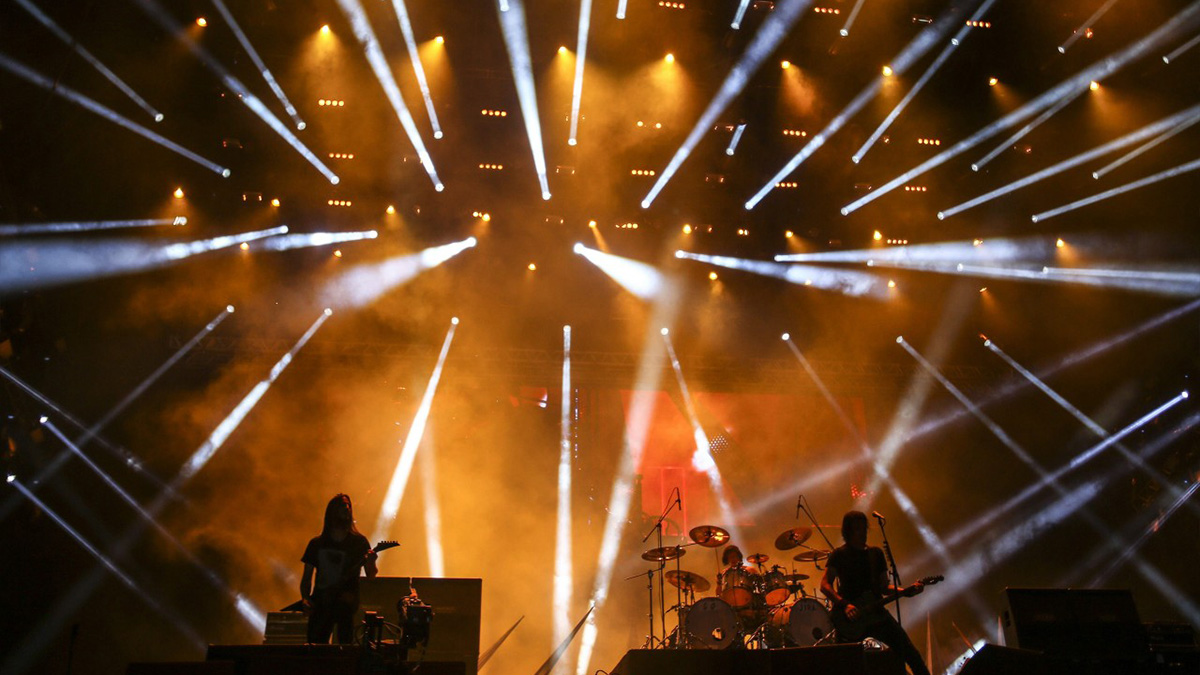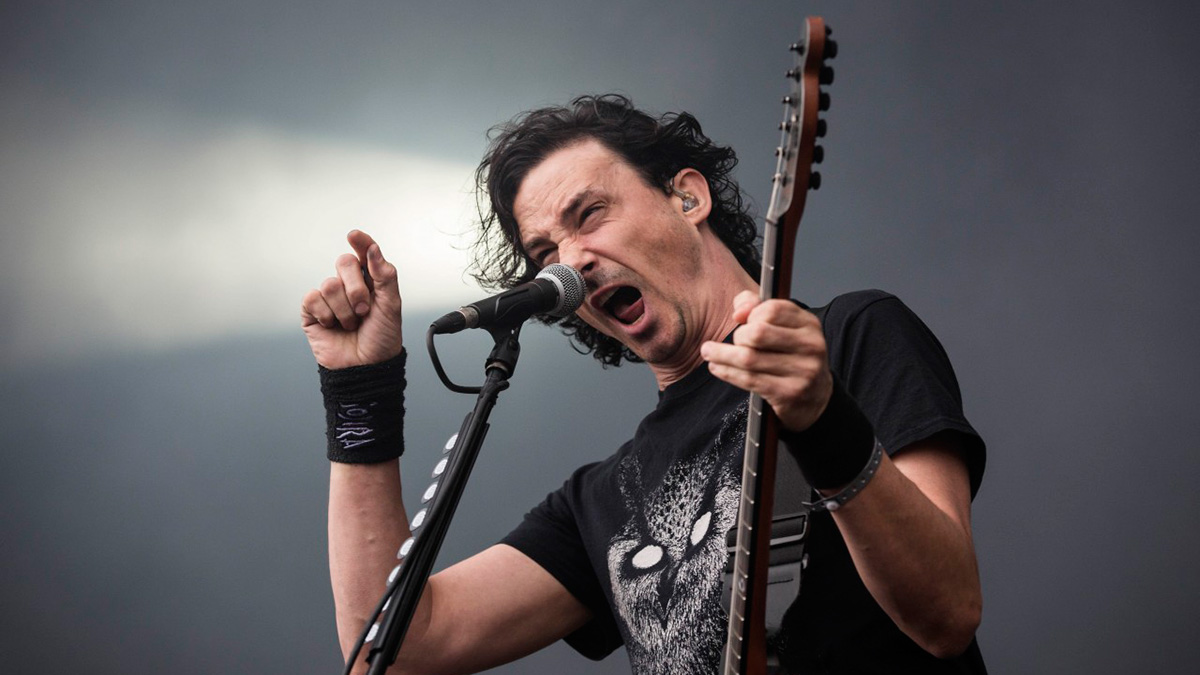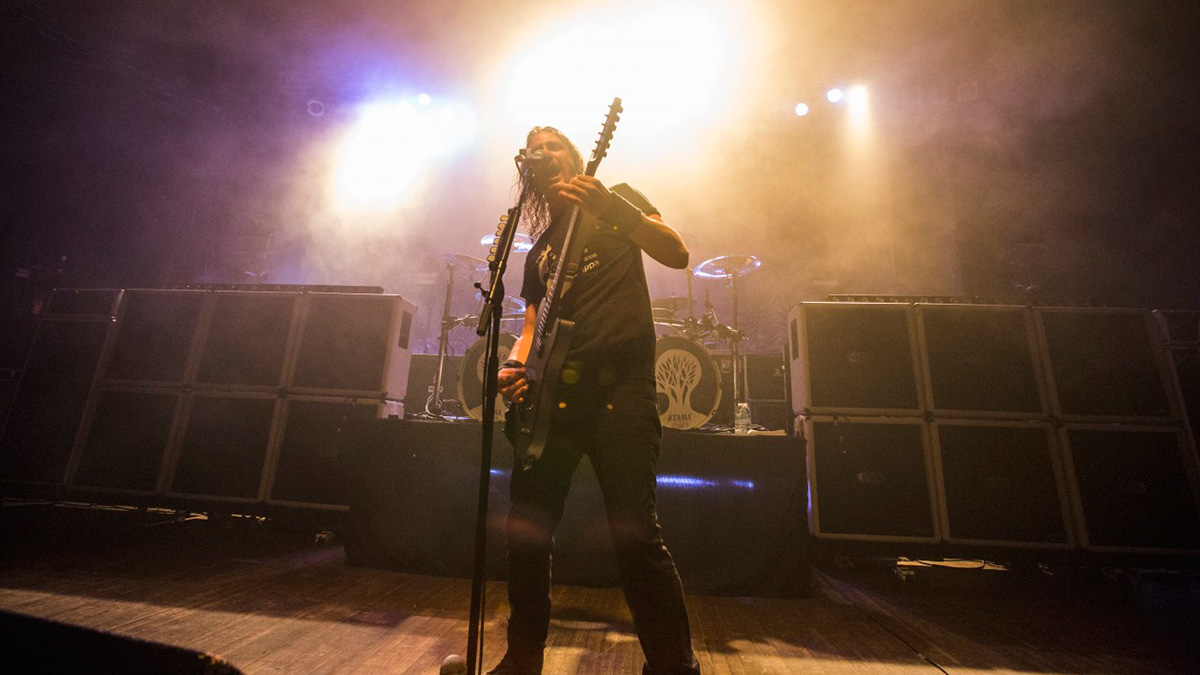Gojira's Joe Duplantier: my top 5 tips for guitarists
"I've always wanted to work hard and be the tightest band out there"

Introduction
Now six albums in, French metallers Gojira have amassed a loyal following and an army of admirers thanks to their blend of technicality and prog power.
So, you might expect that when it came time to track new record Magma, they afforded themselves a few luxuries. You know, a star-name producer, a swanky studio and the like. Not quite.
Instead, the band recorded at frontman/guitarist Joe Duplantier's New York studio. Not only that, they produced and mixed the thing all on their own as well.
It was a total immersion for us into this record
“It was a big task - it's pretty crazy… in fact, it's almost insane,” laughs Joe. “It's not quite insane, but almost. It was a total immersion for us into this record. That's just the way I like to do it - it is a bit extreme.
“Maybe if I was making another record right now, I might enjoy working with someone else handling everything, and I just had to worry about playing guitar. I don't regret it, though; it makes the album what it is. At this point, in a way, I see myself as more of a producer than a guitar player. I use the guitar to help me reach the vision that I have for an album.”
It's a vision packed full of killer riffs, and there's one in particular that stands out for Joe.
“There's a part in the song Magma that is kind of a scale, and I hadn't done that kind of thing on a song before,” he says.
“Trying these new things just helps everything sound fresh. A lot of our songs are just one note going on all the time with weird noise going on and weird riffs, but Magma is halfway between a riff and a solo. There's something very proggy and Mike Oldfield-y with that.”
With Magma all set to confirm Joe's status as a bona fide guitar hero, what better time to ask him to share his top five tips for guitarists?
Magma is out on 17 June via Roadrunner Records.

1. Don't give up
“Writing is all about making yourself available for the riff to come. You can't force inspiration. Well, unless you take drugs! That's not us, though: we're clean and sober in our lives and we want to create fantastic music, which feels like a drug. We create our own drug with our music.
“The hardest part is to not give up. Sometimes, you will create something and you're almost there but not quite. That feeling of not being satisfied could lead you to judge the riff as not being good enough.
“We might jam sometimes and I think something is great. Then the more we play it the less I like it, and I end up judging it and it brings the energy of the whole day down. You were thinking you had this great riff, but then it ends with you thinking it's not great at all and you're a piece of shit and you go home depressed.
“Instead of that, you can't judge the riffs. Just record it and put it on the side and wait. We might talk for an hour and then jam something that is completely not original on purpose. We'll do that for 10 minutes and something new all of a sudden comes up - you get something original out of it.”

2. Work at it
“If you're in a band and you want to take it to the next level and become professional, then to work hard is the biggest piece of advice I could give. That isn't really a tip, I guess, but it just shows that there is no magic trick to becoming a great guitar player.
“You just need to work at it. Usually, though, guitar players love playing guitar more than anything, so working hard at it really shouldn't be a problem.
“We used to get together once a week as a band and work. Then we started getting gigs and recording demos, and now everything has changed. We have big chapters where we're preparing for a tour and then we'll play six times a week for months.
I've always wanted to work hard and be the tightest band out there
“After that, we need a break, we need a month off and we need a big nap. We need to spend time with our families, and we don't need to practice every week and sit around drinking beer. When you get to that point, the healthy thing to do is to have some distance and stay fresh and stay hungry. As you're coming up, you need to work hard, but when you're gigging like we do sometimes taking time off is the right thing to do.
“When you start working and progressing as a musician, you will hit a point where you feel like you can't play and you feel like everything you do is shit. That's a good thing. When you get to that point it means that you have started to open your eyes to the level that you're at and you can see that you need to work more. I've always wanted to work hard and be the tightest band out there, and that takes a lot of work.”

3. Play with a metronome
“In my opinion, you really should work with a metronome. This is especially true if you're playing metal. That was one thing that we use in Gojira, especially at the beginning when we were inventing our sound: the main thing was that we wanted to be tight together.
“What we would do was for all of the complicated riffs that we had we would slow them down a million times and play them super-slowly. If you can understand them and play your complicated metal riffs super-slow, then that means you own that riff. Then when you play it back at full speed it is completely different. Slowing the tempos down is a great way to practise.”

4. Play with your heart
“You need to make sure that you play with your heart some of the time rather than always playing with your brain.
“Sometimes, as a guitar player, I play a chord and I'm not suppose to maybe let the string ring because it's not in the technique books, but sometimes doing something like that can help create the signature or the charm of a song.
“The originality of the sound can come out when you trust your hands and play with your heart. You can't be afraid to be yourself and to be honest, because that is when you can make something original.
“Also, you should never be scared to play something that you have heard before. You might have a riff that you think is common or boring, but if you just put your feel on it and play it your own way, then it will become original.”

5. Be a good parent
“If you're a metal or rock guitarist - or even reggae actually - then you need to be firm with your right hand. You don't want to be too hard but you don't want to be too soft. You need to be the right intensity with your right hand.
“It's just like raising kids: you don't want to be too firm and harsh on them, but you also don't want to be too soft; it's the same with the guitar. Be a good parent!”
Rich is a teacher, one time Rhythm staff writer and experienced freelance journalist who has interviewed countless revered musicians, engineers, producers and stars for the our world-leading music making portfolio, including such titles as Rhythm, Total Guitar, Guitarist, Guitar World, and MusicRadar. His victims include such luminaries as Ice T, Mark Guilani and Jamie Oliver (the drumming one).
